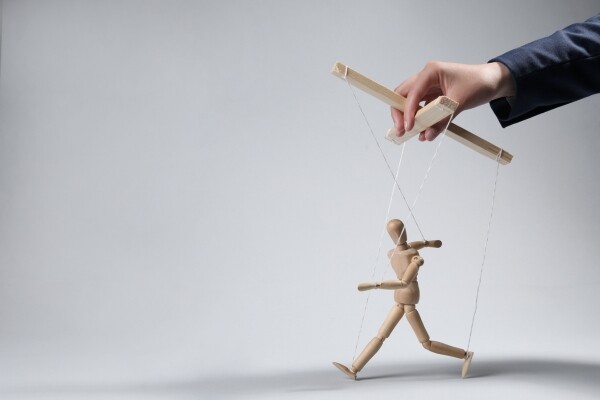
Yesterday I was in an “Exam Board” which is the decision-making meeting that confirms the degree award that students will receive. It’s my job to check all their marks and present the results to external examiners who scrutinise our work. At the point of the meeting where I had to provide the information, my boss said, “OK Graham, over to you, you’re in charge now”. Then quickly adding, “Not for long, though….!” What she meant, of course, was that for this part of the meeting, I was the person responsible.
Being “in charge” means that you are in control. At least that’s what we think it means. The word “charge” is Medieval French, derived from the Latin “carricare”, which means to load a “carrus” which was the name for a two-wheeled cart. Technically, the word “charge” means to “put a burden upon” – as you would have been putting a burden on a cart. So, somebody who is “in charge” has a burden put upon them.
Many people dislike being “in charge” because they do not want the responsibility – the burden of the role. Most people prefer others to be weighed down with the responsibility of things like running the company or making decisions in the workplace. But that preference also means that it transfers to other aspects of our lives too.
In a session with postgraduate business students on Thursday, I asked what I thought was a straightforward question: “Who is in charge of your technology, you or the tech companies?” The students had to think for a moment or two before saying things like, “The tech firms, but it really ought to be me”.
That thought also occurred to me when I received my lovely shiny new phone the other day, a Google Pixel 8 Pro. For the Apple fans, it’s the latest Android phone that is beating the “top of the range” iPhone 15 in most reviews…! Just saying. Anyway, I digress into my hobby horse of disliking Apple products. Hey ho.
Like the iPhone, the Pixel comes with a host of fantastic features, including artificial intelligence that will make even my shaky pictures look professional. But I had to spend a couple of hours going through all the phone’s settings, disabling many of the elements that were automatic to make them manual. Essentially, Google wanted to be in charge of my phone, not me. I was having none of that…!
However, when people hand me their phone to take a picture, for instance, it’s often obvious they haven’t changed the settings. I might be about to take a group photo when some announcement pops onto the screen. I would ask the phone’s owner what they want to do and they will say something like, “oh you can ignore that, it keeps coming up and I don’t know what to do about it; it’s so annoying”.
It means that the tech company is in charge of them, not the other way around.
In a much more negative and disturbing way, the “who is in charge” notion is played out online in the delivery of news. Who do you believe in relation to the appallingly dreadful news emerging from Israel and Gaza? Already it has become apparent that some of what we have been told as “fact” was entirely fabricated. Traditional trusted sources of news now cannot believe their informants or the material they are receiving, as it could have been created using artificial intelligence. The traditional media is being manipulated by others who are “in charge”.
But it is not just the media; it’s businesses and you and me. It has now emerged that almost half of the traffic on the Internet is by “bots” – not humans. Worse still, half of those bots are “negative”. That means a quarter of what is going on online is where someone else is using automation to take charge of our lives in some way.
Yet I still see businesses with weak online security measures and poorly trained staff who are unable to determine what is a problem. They put their trust in the technology companies because they do not want to be “in charge” themselves. That’s a bit like saying as a pedestrian you will trust the car manufacturers to make sure you are not badly hurt if you cross the traffic without looking. You’re not that daft, are you? You take the responsibility for your own safety. You are in charge.
So why do so many of us not take the same responsibility when we use technology? It has significant potential to ruin our business and our lives. It is potentially as much of a danger as walking across the road without looking.
You can take the first step today by taking control of your phone and not letting Apple or Google determine things for you.
